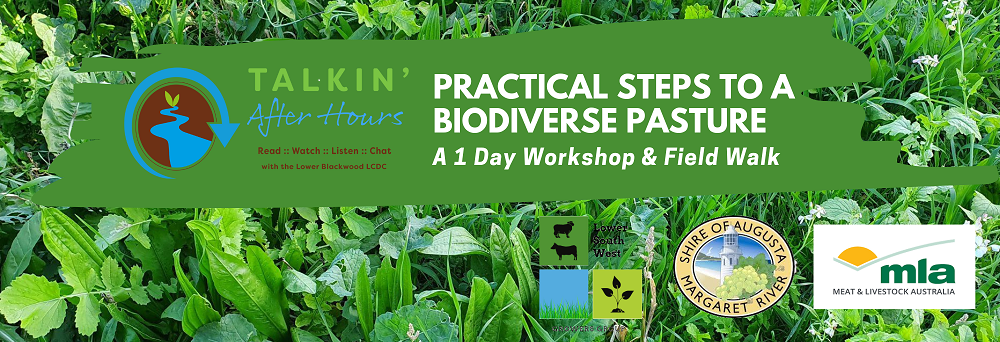
Practical Steps to a Biodiverse Pasture
Plants capture Co2 via photosynthesis and convert it into simple sugars that feed soil biology & build soil humus – it’s a process called the liquid carbon pathway. The formation of humus requires a vast array of soil microbes, including mycorrhizal fungi, nitrogen fixing bacteria and phosphorus solubilising bacteria, all of which obtain their energy via plant sugars (liquid carbon).
Turning air into soil through the Liquid Carbon Pathway
By boosting your pastures with a wide range of plant families and species, and including perennials to ensure there are living roots in your system year round, you are creating the environment for this diverse array of soil microbes to do their thing well – with improvements to the overall health & resilience of your soil, pasture & livestock to follow.
It’s not all plain sailing though, there are challenges that come with moving away from a simplified annual rye & clover system. This workshop will explore the practical aspects of getting the diversity into your pastures, to germinate, survive & thrive, including the lessons we have learned through our own Pasture Biodiversity and Filling the Autumn Feed Gap Projects.
Topics covered will include:
- Designing a seed mix that works for you
- Appropriate nutritional strategies
- Preparing and seeding the paddock
- Autumn feed gap results & reflections
- Field walk on an autumn feed gap demo site
- A demonstration on how to take pasture cuts for yield and quality analysis

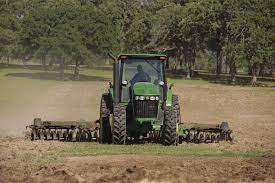
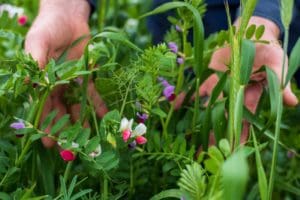
Event Logistics:
When? Thursday March 9th 8.45am to 3.00pm
Where? Scott River Fire Shed, Corner of Mileyanup Coast Road & Governor Broome Road.
Cost? This is a free event
What else? Morning Tea & Lunch will be provided. BYO refill water bottle, wear appropriate farm footwear and dress for the weather.
How? Register your details along with any special dietary needs via this event page.
For any queries please contact Dean Campbell on Mob: 0499 072 348 | Email: dean.campbell@lowerblackwood.com.au
This event is supported by:
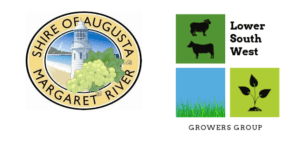

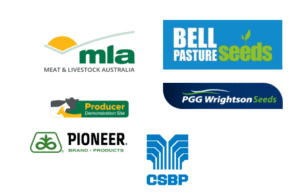
Please note: Our event supporters accept no liability for any costs incurred by the participant due to a cancellation or postponement of the Event.
Speakers
-
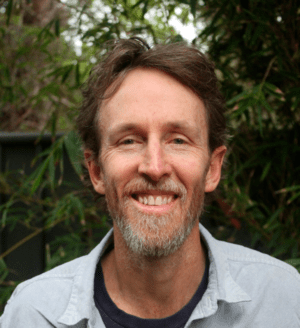 Mark TupmanAgroecologist, Productive Ecology
Mark TupmanAgroecologist, Productive EcologyMark Tupman is a consultant and educator in the fields of biological production, permaculture, regenerative agriculture and holistic land management, with an abundant backyard!
Over the last three decades, he has been actively involved in a mix of training, research and community projects, and commercial horticulture, livestock and cropping operations.
Aside from time spent on the ground, he is a regular speaker, advisor and content creator for various organisations around Australia. Through his business, Productive Ecology, he assists gardeners, farmers and companies to implement more economically and environmentally viable production systems, that are examples of what can be achieved by working with life.
-
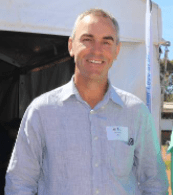 Sam TaylorAgronomist, aVivo
Sam TaylorAgronomist, aVivoSam is a skilled agronomist with extensive experience in providing technical advice on crops and pastures, grazing systems, fertiliser management and animal production in a farming system context. Strong empathy with client’s business requirements has seen Sam forge strong client relationships over 12 years of research and commercial agronomy. agVivo Pty Ltd provides agricultural and natural resource management services to leading agricultural industry associations and over 500 farmers throughout WA.
-
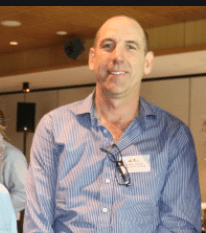 Graham MussellAgronomist, Graham Mussell Consulting
Graham MussellAgronomist, Graham Mussell ConsultingGraham is an Agricultural Scientist with a broad range of experience in agricultural production and business management in high, medium and low rainfall environments. Graham has over 20 years of experience as an agronomist, advisor, farm manager, researcher and extension specialist, and through his business Graham Mussell Consulting, works closely with farmers and industry to improve productivity and efficiency.

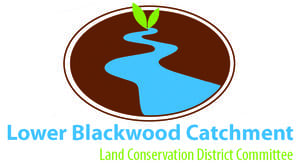
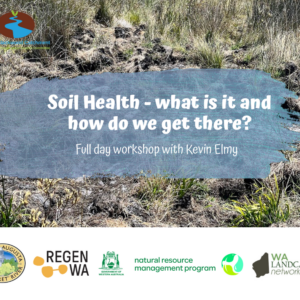
Responses